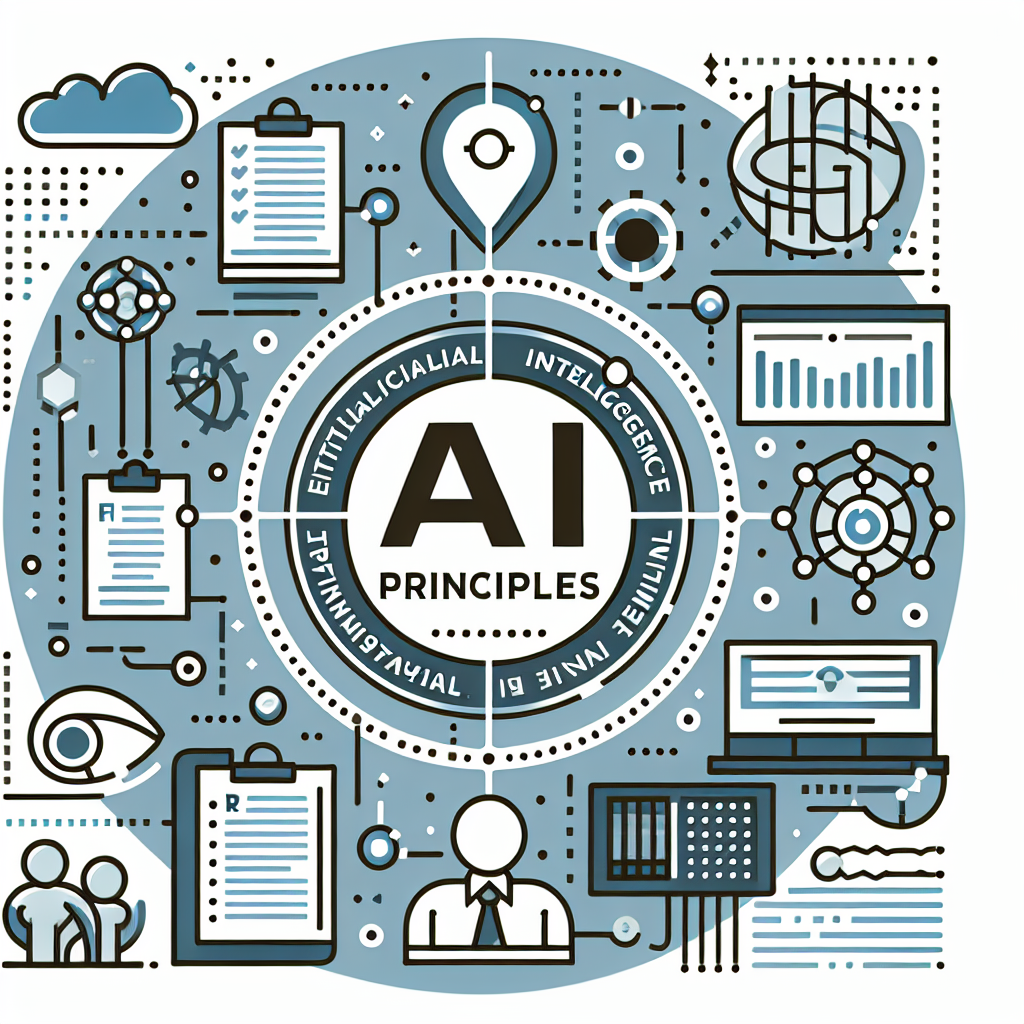Artificial intelligence (AI) is becoming increasingly prevalent in various industries, with organizations using it to optimize processes, improve decision-making, and enhance customer experiences. However, as AI becomes more widespread, concerns about its ethical implications have also grown. It is crucial for organizations to implement ethical AI principles to ensure that their use of AI is responsible and aligned with societal values.
Implementing ethical AI principles in an organization involves considering various factors, such as fairness, transparency, accountability, and data privacy. By prioritizing these principles, organizations can build trust with their stakeholders, mitigate risks, and contribute to a more ethical AI ecosystem.
In this article, we will discuss how organizations can implement ethical AI principles and address common questions about ethical AI.
1. Understand the Ethical Implications of AI
Before implementing ethical AI principles in your organization, it is essential to understand the ethical implications of AI. AI systems can exhibit bias, discrimination, and unintended consequences if not properly designed and monitored. It is crucial to recognize that AI is not inherently ethical or unbiased, and its outcomes depend on how it is developed, implemented, and used.
Organizations should assess the potential ethical risks associated with their AI systems and consider how these risks can impact individuals, communities, and society as a whole. By understanding the ethical implications of AI, organizations can take proactive measures to address these risks and ensure that their AI systems are aligned with ethical principles.
2. Develop Ethical AI Guidelines and Policies
Once you have a clear understanding of the ethical implications of AI, the next step is to develop ethical AI guidelines and policies for your organization. These guidelines should outline the principles, values, and practices that guide the development, deployment, and use of AI systems within the organization.
Ethical AI guidelines should address key areas such as fairness, transparency, accountability, privacy, and security. Organizations should establish clear guidelines for data collection, model training, decision-making processes, and algorithmic transparency to ensure that their AI systems are ethical and responsible.
It is essential to involve stakeholders from various departments, including legal, compliance, IT, and data science, in the development of ethical AI guidelines. By engaging with diverse perspectives, organizations can ensure that their ethical AI policies are comprehensive, practical, and aligned with their values.
3. Incorporate Ethical Considerations into AI Development
To implement ethical AI principles effectively, organizations must incorporate ethical considerations into the entire AI development lifecycle. This includes data collection, model training, testing, deployment, and monitoring of AI systems.
When collecting data for AI systems, organizations should ensure that the data is representative, unbiased, and compliant with data privacy regulations. Data should be collected ethically and transparently, with consent from individuals when necessary. Organizations should also consider the potential impact of historical biases and discrimination in the data on the AI system’s outcomes.
During the model training process, organizations should implement fairness and bias detection mechanisms to identify and mitigate biases in the data and algorithms. It is essential to test AI models for fairness, transparency, and accuracy to ensure that they produce reliable and ethical results.
When deploying AI systems, organizations should establish mechanisms for monitoring, auditing, and evaluating the system’s performance over time. This includes monitoring for bias, discrimination, and unintended consequences, as well as providing explanations for AI decisions to stakeholders.
4. Promote Ethical AI Awareness and Training
To ensure that ethical AI principles are effectively implemented in an organization, it is crucial to promote awareness and provide training on ethical AI for employees. Organizations should educate their staff on ethical AI principles, guidelines, and best practices to ensure that they understand the importance of ethical considerations in AI development and deployment.
Training programs on ethical AI should cover topics such as bias detection, fairness testing, transparency mechanisms, and accountability measures. Employees involved in AI development, deployment, and management should receive specialized training on ethical AI to enhance their skills and knowledge in this area.
Organizations should also encourage open discussions and collaboration among employees to promote a culture of ethics and responsibility in AI development. By fostering a culture of ethical awareness and accountability, organizations can ensure that their AI systems are developed and used responsibly.
FAQs
Q: What are the key ethical principles of AI?
A: The key ethical principles of AI include fairness, transparency, accountability, privacy, and security. These principles guide the development, deployment, and use of AI systems to ensure that they are ethical, responsible, and aligned with societal values.
Q: How can organizations address bias in AI systems?
A: Organizations can address bias in AI systems by implementing fairness and bias detection mechanisms during the model training process. This includes identifying biases in the data and algorithms, testing for fairness and accuracy, and mitigating biases to ensure that AI systems produce equitable outcomes.
Q: How can organizations ensure transparency in AI decision-making?
A: Organizations can ensure transparency in AI decision-making by providing explanations for AI decisions to stakeholders. This includes making AI algorithms and processes transparent, documenting decision-making processes, and enabling stakeholders to understand how AI decisions are made.
Q: What are the challenges of implementing ethical AI principles in organizations?
A: The challenges of implementing ethical AI principles in organizations include identifying and mitigating biases in AI systems, ensuring transparency and accountability in AI decision-making, complying with data privacy regulations, and promoting ethical awareness and training among employees. Organizations must address these challenges to ensure that their AI systems are ethical and aligned with societal values.
In conclusion, implementing ethical AI principles in an organization is essential to ensure that AI systems are developed and used responsibly. By prioritizing fairness, transparency, accountability, and privacy in AI development, organizations can build trust with their stakeholders, mitigate risks, and contribute to a more ethical AI ecosystem. By following the steps outlined in this article and addressing common questions about ethical AI, organizations can enhance the ethicality of their AI systems and contribute to a more ethical and responsible AI landscape.

